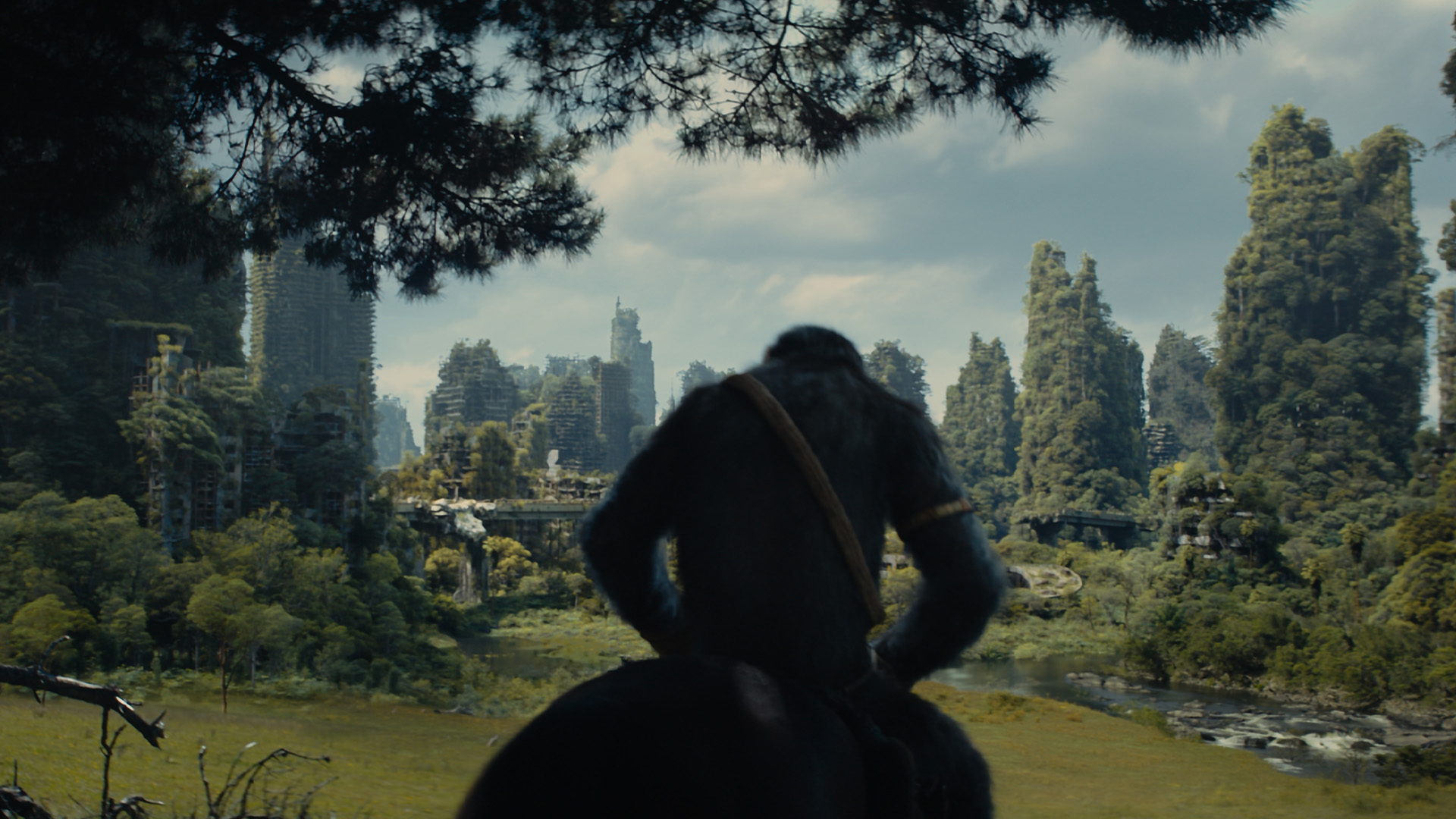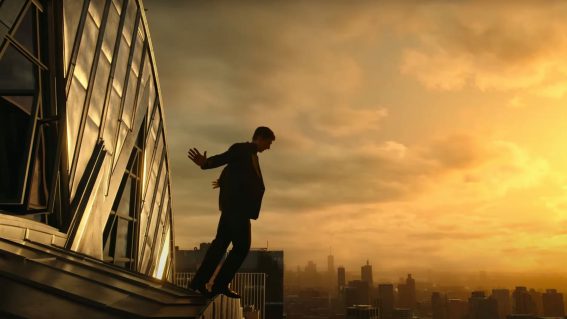Kingdom of the Planet of the Apes is huge of heart, with bravura action

Wes Ball takes the reins for a new run Apes pic, taking place generations after War for the Planet of the Apes. Kingdom is a worthy, if overlong, successor to one of the finest trilogies in modern blockbuster storytelling, says David Michael Brown.
Kingdom of the Planet of the Apes
Ever since the original Planet of the Apes (1968) ended with a crestfallen Charlton Heston famously falling to his knees screaming “God damn you all to hell!” in front of the shattered remains of the Statue of Liberty, the world has gone Ape. Through four sequels (Beneath the Planet of the Apes, Escape from the Planet of the Apes, Conquest of the Planet of the Apes and Battle for the Planet of the Apes) that spanned between 1970 and 1973, a 1974 television series that played like Starsky and Hutch with gorillas, an artistically moribund big-budget 2001 remake from Tim Burton and a new trilogy kick-started by director Rupert Wyatt’s Rise of the Planet of the Apes starring the mo-cap maestro Andy Serkis, Hollywood has been in the monkey business.
The Matt Reeves-directed Dawn of the Planet of the Apes and War for the Planet of the Apes not only ended the trilogy but decimated a human race blighted by simian flu, Woody Harrelson’s Apocalypse Now channelling psycho despot and Caesar’s army of heavily armed apes. As an allegory for racism, civil unrest and animal rights, War ended on a pessimistic note for mankind as audiences cheered on Caesar to victory.
Now comes Kingdom of the Planet of the Apes, shot in Australia, and directed by Maze Runner series helmer Wes Ball, who wanted to make his sequel “Apocalypto with Apes.” In reality, comparing the fourth modern era Apes film to Mel Gibson’s exhilarating adrenalin charged Yucatec Maya language actioner is a great disservice, but there is still plenty to engage in this post-apocalyptic whoop-fest. Even if Kingdom only just fails to live up to the previous trilogy.

Taking place many generations after the reign of Caesar, his legend and legacy lives on amongst simian kind. Now ape civilisations have emerged as the dominant species in a tense new world order. Humans, on the other hand, have regressed into a primal animalistic state. Or so the Apes think. When his village is attacked and his troops are kidnapped by the eccentric but psychotic ape king Proximus Caesar (Kevin Durand) who obviously missed the “Ape not kill Ape” line in Caesar’s manifesto, vengeful chimpanzee Noa (Owen Teague) heads out to rescue his clan. With a benevolent loner Orangutang Raka (Peter Macon) and a mute human girl (Freya Allan) by his side, Noa finds himself at a pivotal moment in history that could change the path of ape evolution and see the anthropoid-favouring status quo forever changed.
Serkis was always going to be a tough act to follow but Owen Teague does an exceptional job as Noa greatly aided by some astonishing CGI work by Kiwi FX maestros Wētā. The emotion that the actors lend their primate characters through motion capture is astonishing. It remains to be seen if Noa reaches the heights of characterisation that was achieved with Caesar across the anticipated new trilogy, but the potential is there. On the homo sapien side of things, Freya Allan tries valiantly but barely registers as Nova while the always reliable William H. Macy is wasted.
Positing the action in a dystopian future not unlike the Earth of the original ’60s film you half expect Chuck and his fellow astronauts to crash land on proceedings. This feeling is only heightened by the use of motifs and moments from Franklin J. Schaffner’s sci-fi classic. From the “scarecrows” that haunt the clifftops to the moment that horse-riding apes round up humans as they run through corn fields tying to escape, all soundtracked by snippets of Jerry Goldsmith’s iconic score, even the underground vault that King Proximus Caesar covets harks back to the subterranean city inhabited by nuclear bomb worshipping telepaths in Beneath the Planet of the Apes while the beach setting recalls the aforementioned sighting of Lady Liberty.

While the film does hark back to its origins, Kingdom also rejoices in being free of the shackles of Rise, Dawn and War. No longer burdened by the need to tell an origin story or arrive at the inevitable conflagration, this new Apes episode, while still introducing a whole raft of new characters, is tonally a very different experience.
Kingdom of the Planet of the Apes is a worthy, if overlong, successor to one of the finest trilogies in modern blockbuster storytelling. Huge of heart with enough bravura action set-pieces to sate the biggest Apes aficionado, this sci-fi parable doesn’t monkey around making this return to the Planet of the Apes a welcome one. It’s time to go Ape! Again!


















